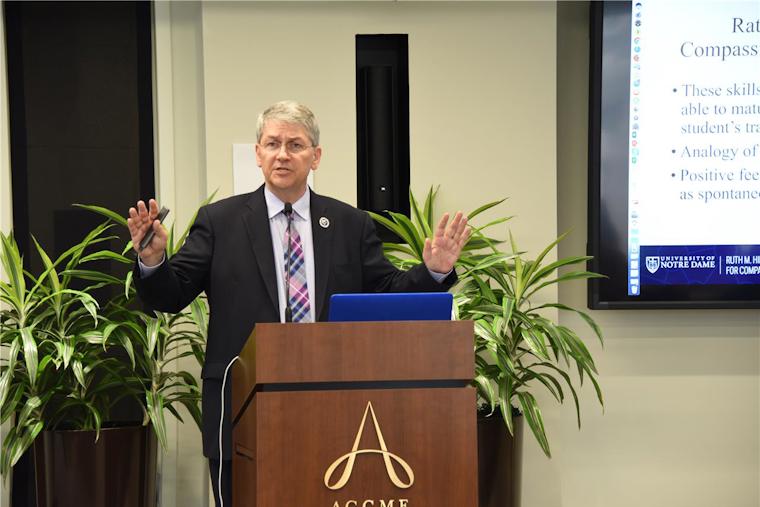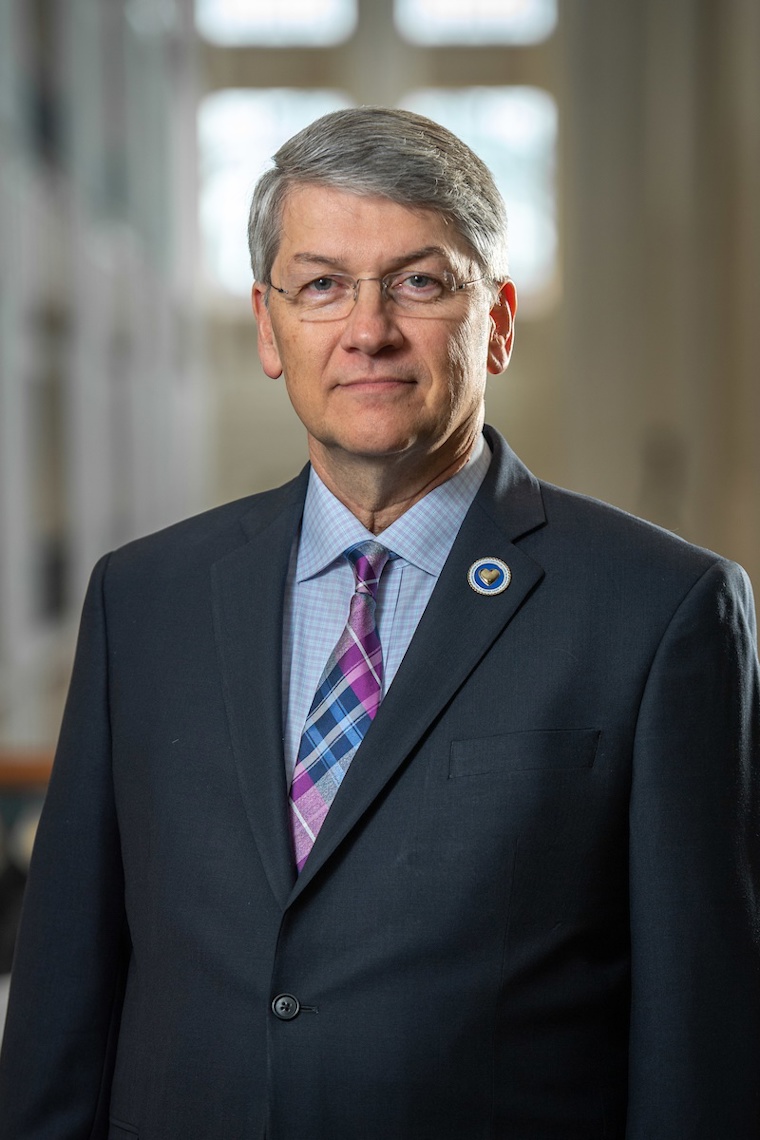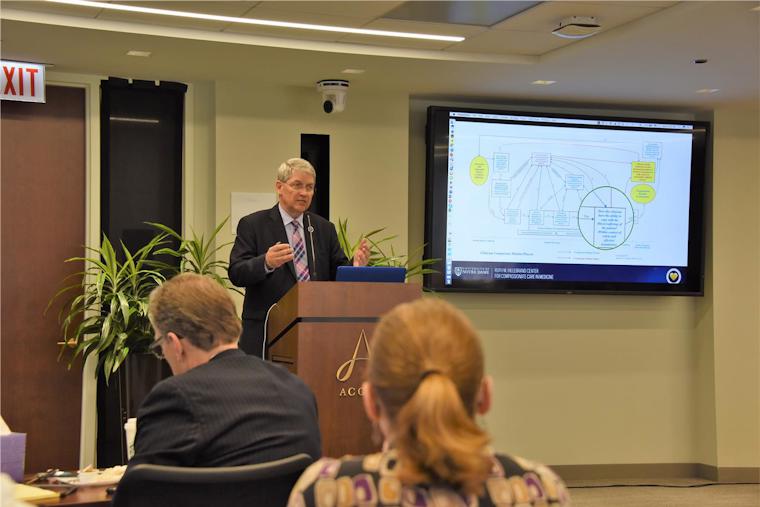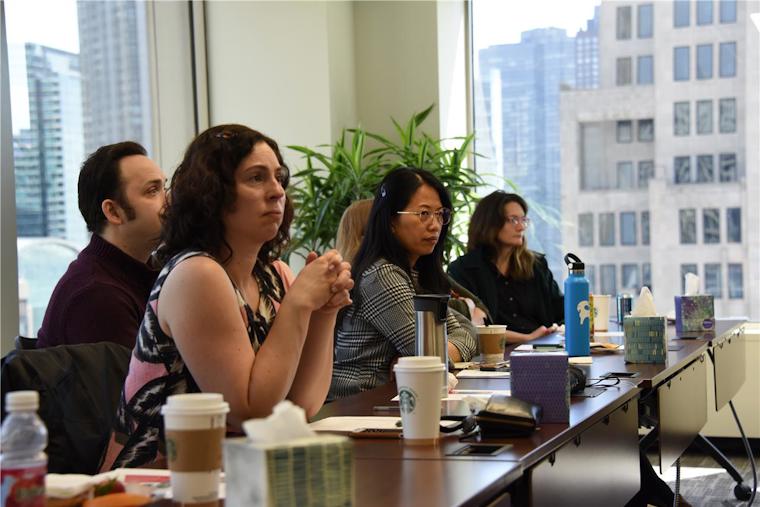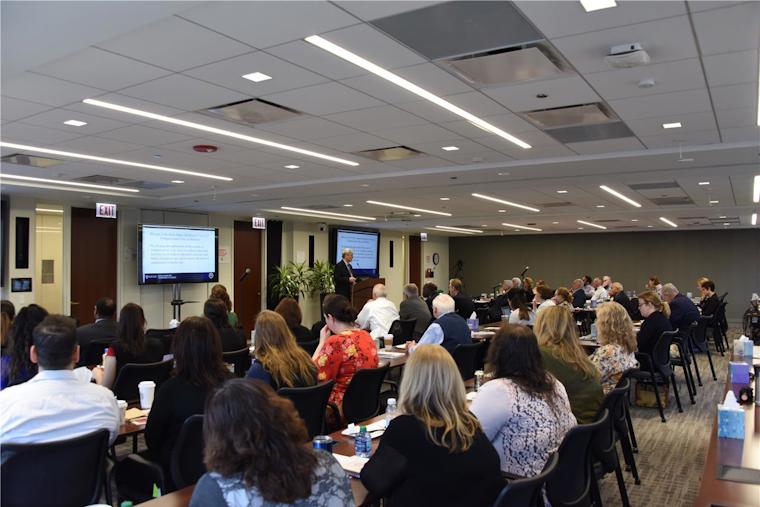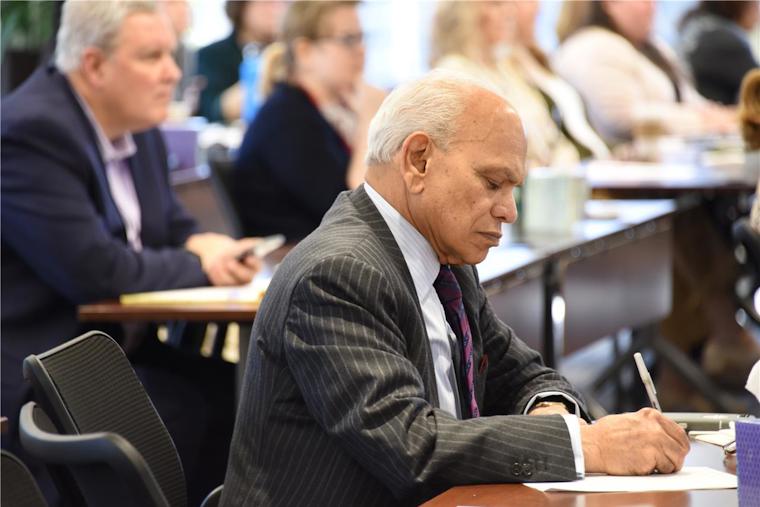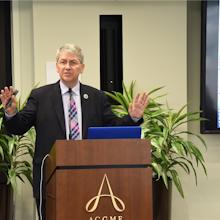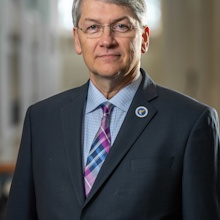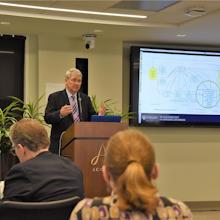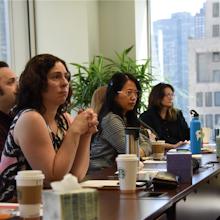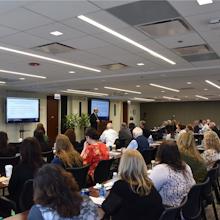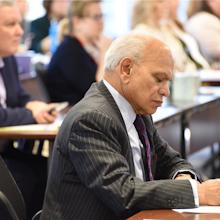Training physicians in the science of compassion not only makes for more caring physicians, it improves their abilities as clinicians and may help prevent burnout. Dominic O. Vachon, MDiv, PhD, made this case during his Baldwin Seminar Series presentation, “The Science of Compassion and Its Practical Application to Pre-Medical Education, Medical Education, and Clinical Practice” held May 22, 2019 in the ACGME offices in Chicago, and publicly via livestream.
“We are built for compassion, and the bottom line is, when we are in this compassionate space, in this compassionate mindset, we are at the best for our patients, but we are also at the best for caring for ourselves,” Dr. Vachon said.
Dr. Vachon, the John G. Sheedy, MD Director of the Ruth M. Hillebrand Center for Compassionate Care in Medicine in the College of Science at the University of Notre Dame, has been researching compassionate care for decades, after noticing his residents struggling to work with difficult patients.
“I think they were blindsided emotionally in residency, by the emotional intensity of witnessing suffering,” Dr. Vachon said. As research on the biological, physiological, neurological, and psychological effects of compassion developed, Dr. Vachon recognized that compassion could sustain, instead of drain, physicians.
Compassionate Care and the Physician/Patient Relationship
Dr. Vachon defined compassionate care as “that amazing ability to notice what is going on in another person and focus your wonderful training and competence on that other person and do whatever you can do for that other person.”
According to research, Dr. Vachon said, mammals have developed an unconscious ability to assess safety inside of 30 seconds, he said. In a consultation, the physician can use that 30 seconds to establish rapport and a sense of safety, or, conversely, destroy it. Additionally, humans have an empathetic, mirroring response mechanism; patients absorb and reflect the behaviors of their physicians. If the physician is disengaged, the patient will be, too.
“Suppressing compassion leads to the loss of data about the patient,” Dr. Vachon said, “and that makes it harder to be a competent clinician.” When patients feel safe and that their clinician is interested in them, they are more likely to disclose symptoms, be receptive to treatment, and follow through on treatment, he said.
What are the Implications for GME?
Dr. Vachon showed a chart of physician engagement with patients, and pointed to a zone in which compassion and empathy are balanced with boundaries; the physician is neither emotionally distant, nor is he or she over-involved (e.g., giving a patient personal contact information).
“What we strive for is this balanced zone of caring,” he said, and physicians working in that space appear to have a “buffer against burnout.”
Dr. Vachon added that burnout, which according to research is a normal part of physicians’ early careers, can be the beginning, rather than the end, of achieving a sustainable and more resilient compassionate care mindset, he said.
Dr. Vachon advocated for compassionate care to be taught continuously in foundational learning at all levels of medical education—starting with pre-med undergraduates, and building these skills throughout medical or dental school and GME.
“Give them the tools for the inner attitude and the external communications before they even start [clinical work],” he said.
He encouraged the use of multiple teaching methods throughout residency including classes, workshops, observing bedside manner, and giving one-on-one feedback.
Additionally, compassionate care is not the sole responsibility of the individual, Dr. Vachon said. Organizations need better systems that don’t undercut physicians’ intrinsic compassion, he said.
“This desire to help other people is a very powerful, luminous sacred kind of thing,” he said, and institutions should support that.
The ACGME’s Baldwin Seminar Series is offered free of charge to the community, and continuing professional development (CME) is available. The livestream footage of Dr. Vachon’s presentation is available for viewing through June 22, 2019 via the link to register, found on the Baldwin Seminar Series page. Physicians can earn 1.5 AMA PRA Category 1 creditsTM.
The ACGME will announce the lineup for the 2019-2020 Baldwin Seminar Series soon. The next presentation will be June 26 from 9:30-11:00 a.m. at the ACGME offices and online. E-mail cme@acgme.org for details or to join the invitation mailing list.

